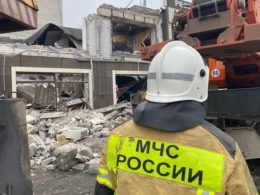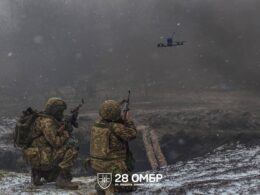After two years of a bloody war in Ukraine, the Kremlin appears to be contemplating an attack on Moldova as well. This former Soviet republic borders Ukraine and is home to the self-proclaimed Pridnestrovian Moldavian Republic (Transnistria) - a region similar to Russian-occupied Donbas.
Euromaidan Press reviewed Russian propaganda statements and compared them with the rhetoric preceding the full-scale invasion of Ukraine.
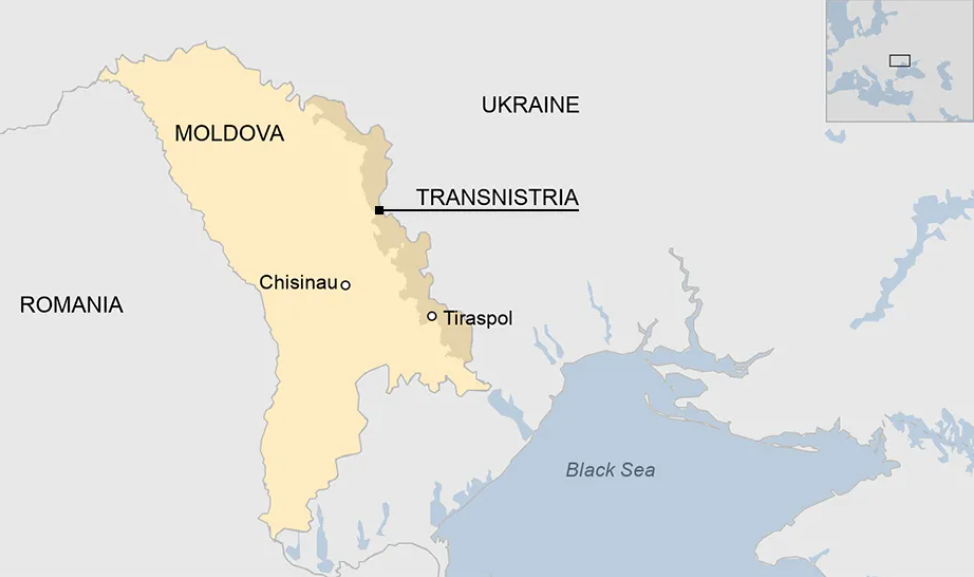
Kremlin rhetoric hints at Moldova as next target
On 14 February in the Russian State Duma, Russian Foreign Minister Sergey Lavrov made statements about Moldova practically repeating what the Kremlin said on the eve of the full-scale invasion of Ukraine:
- The Moldovan leadership is yet another Western geopolitical project of the United States and European Union;
- The West demands that Moldova choose between the EU and Russia, while considering Transnistria a “hostile pro-Russian enclave.”
- The West halted the 5+2 negotiation process on Transnistria, which included Russia, Ukraine, Transnistria, Moldova and the OSCE as mediators, as well as the EU and US as observers.
- Russia will not allow the Transnistria issue to be resolved without it.
- There are 200,000 Russian citizens living in Transnistria. Moscow is concerned about their fate and will not allow them to become victims of "yet another Western adventure."
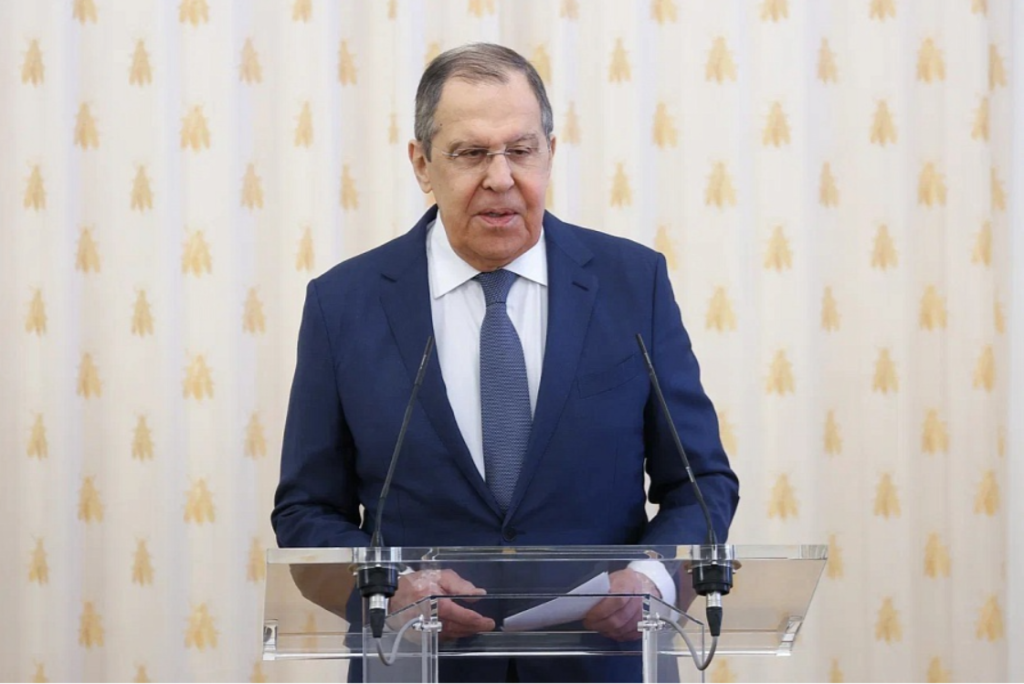
Previously, Russian Foreign Ministry spokesperson Maria Zakharova claimed Moldovan authorities are trying to economically “strangle” Transnistria and prevent a diplomatic solution to the conflict.
The influential pro-Kremlin military blogger Rybar also recently claimed Moldova is “militarizing” to “forcibly reintegrate” Transnistria, an effort for which Russia must prepare.
Lavrov parrots Ukraine war pretexts
Russia deployed identical rhetoric regarding Ukraine on the eve of the full-scale invasion:
- Pro-Kremlin media falsely claimed Zelenskyy is a spokesperson for US interests, and Ukraine does not exist as a state;
- Two months before the invasion, Putin demanded the US guarantee NATO would not accept post-Soviet countries, including Ukraine (at that time no one invited Kyiv to join. There is still no invitation, even two years after the Russian invasion);
- Lavrov stated Ukraine must be forced to implement the Minsk Agreements on Russian-occupied Donbas;
- Russian state media falsely claimed Ukrainian forces were about to launch a major offensive in Donbas;
- Russia's Foreign Ministry declared intentions to "protect Russian-speakers" in Ukraine.
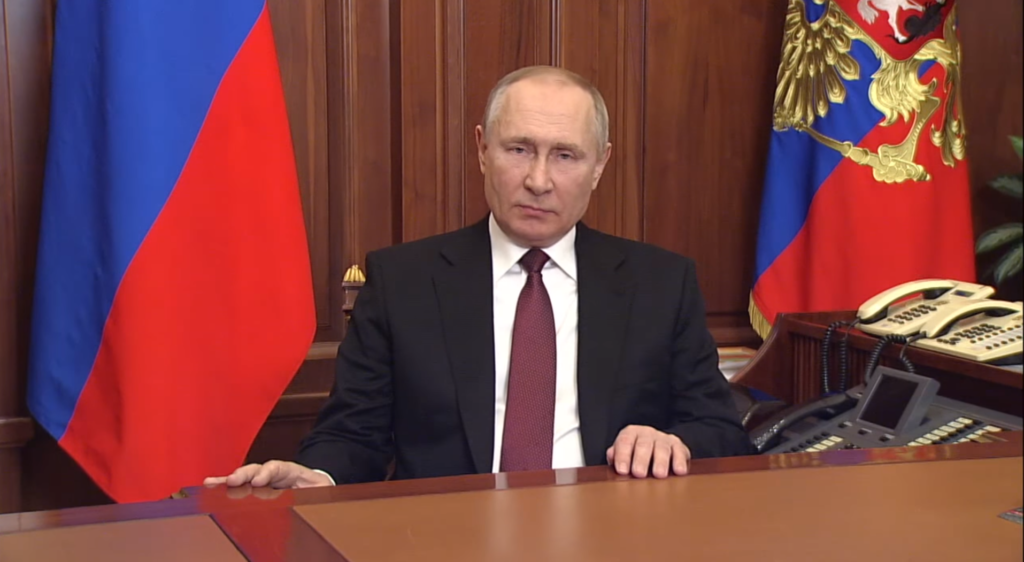
The influential American think-tank Institute for the Study of War (ISW) highlights Kremlin efforts to hinder Moldova's EU integration and pave the way for potential Russian aggression. Drawing parallels to tactics used before the 2014 and 2022 invasions of Ukraine, Kremlin officials and media are conducting information operations aimed at justifying future actions and potential escalation.
“The timing of a possible Russian hybrid operation in Moldova is unclear, but the Kremlin is setting informational conditions to make it possible soon,” the analysts wrote.
Spotlight returns to Transnistria, Moldova’s breakaway Russian outpost
The self-proclaimed Pridnestrovian Moldavian Republic (Transnistria) was formed after the collapse of the USSR. Mostly-Russian-speaking region declared independence from Moldova over fears Chisinau could seek reunification with neighboring Romania, with which it shares a common history and language.
A brief armed conflict then erupted between Transnistrian separatists backed by Russian troops on one side, and Moldovan forces on the other, ending in victory for the separatists and Russian army. Although not officially recognizing Transnistria's sovereignty, Russia provides military, economic, political and diplomatic support.
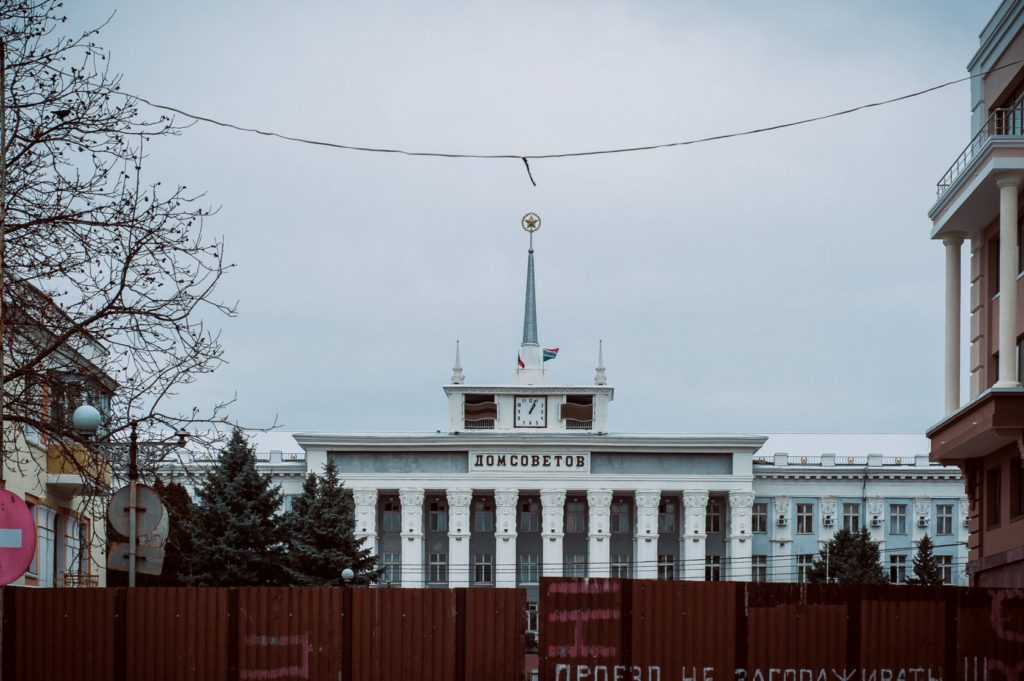
The Russian contingent has remained, propping up Transnistria's existence. Moscow refers to these troops as "peacekeepers." Home to about half a million people, Transnistria seems stuck in the 1990's. It has repeatedly sought integration into Russia, and since 2017 uses the Russian flag as its second "official" flag. Yet the Kremlin long ignored such overtures.
Transnistria's unrecognized status, like that of occupied Donbas, suited Russia as long as it stymied Moldova's progress toward the EU and NATO. But in 2023 Moldova received the European Commission’s backing for opening negotiations on accession to the EU, along with Ukraine, and Kremlin rhetoric has turned to "protecting Russian citizens" in Moldova.
Moldova on edge as Russian threat looms
In February 2023, Moldovan President Maia Sandu reported a Russian plan to destabilize the country and install Kremlin proxies in power, based on intelligence from Ukrainian agencies. Sandu said Russia aims to obstruct Moldova's European integration and leverage it in Moscow's war on Ukraine.
“The plan for the next period involves actions with the involvement of saboteurs with military training, camouflaged in civilian clothes, who will undertake violent actions, attack some state buildings, and even take hostages,” Sandu told reporters.
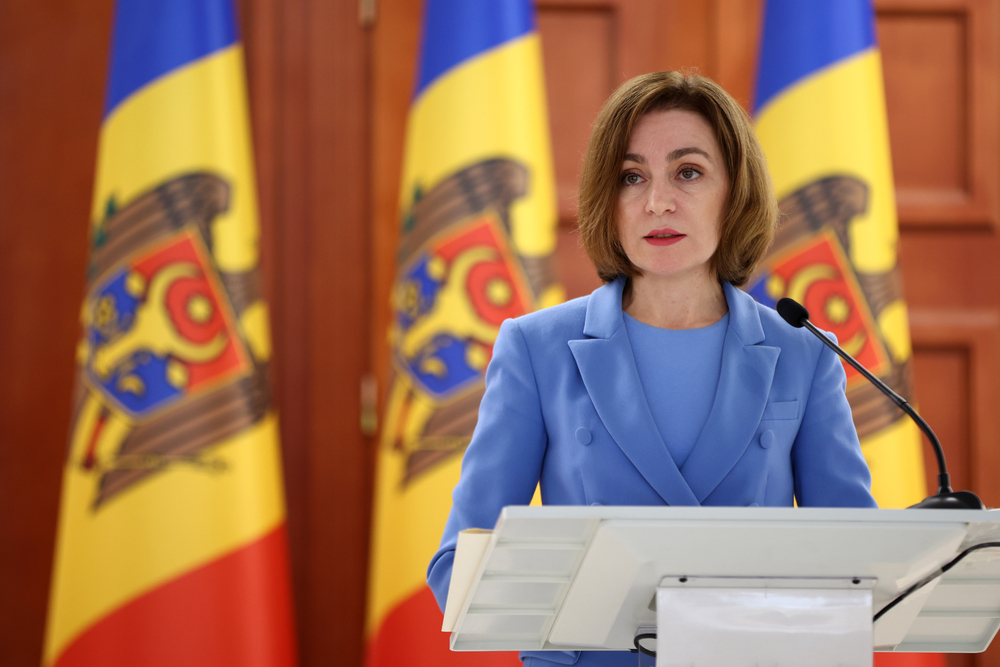
Although Russia's Foreign Ministry dismissed the allegations, an investigative report emerged a month later revealing that Russia has a comprehensive plan for pre-2030 hybrid control of Moldova without military intervention. Instead, goals involved using Transnistria to pressure Chisinau while boosting pro-Russian sentiment to prevent NATO and EU alignment.
“The goal is not to insidiously annex the country, but to strengthen pro-Russian influence in Moldova, primarily to prevent pro-NATO, pro-European trends. The Kremlin sees Moldova as a buffer to Russia rather than a part of the Russian Empire,” a Moldovan intelligence source told the journalists.
Indeed, Moldova has seen apparently organized pro-Russian protests as part of Moscow’s hybrid warfare. Rallies feature paid agitators against Moldova’s pro-EU government. Simultaneously, Russia manipulates Moldova's gas dependency by threatening supply cuts and price hikes to economically pressure the public. Then it directs proxies to channel outrage toward the leadership of the country.
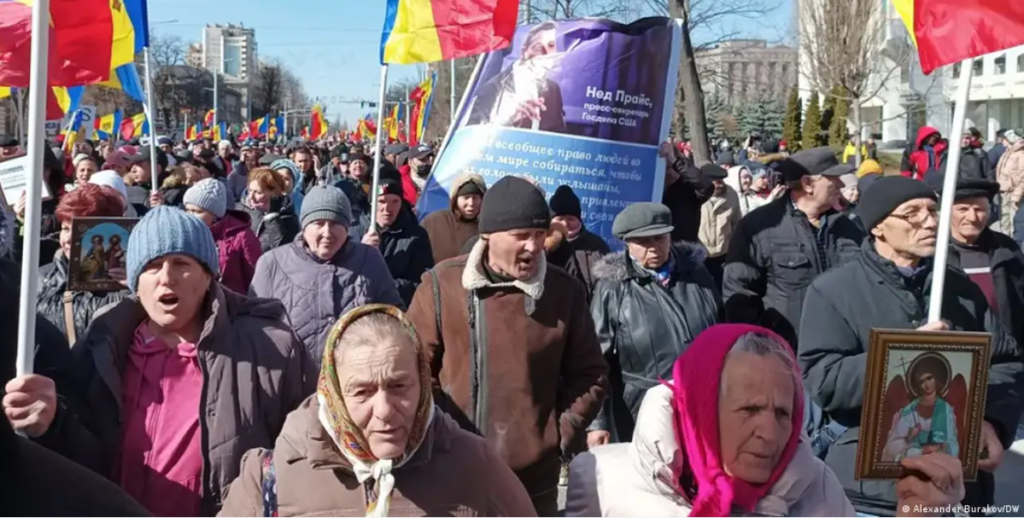
According to Moldova’s intelligence chief Alexandru Musteață, Russia spent approximately one billion Moldovan lei ($55.5 million) to overthrow the democratic government and destabilize the situation in Moldova. One of the main beneficiaries was The Șor Party, which the Moldovan Constitutional Court declared unconstitutional and dissolved in June 2023. According to the court ruling, the Șor party posed a threat to the sovereignty and independence of the country.
In November 2023, Moldova also banned Șansă, another pro-Russian party believed to be affiliated with Shor, from participating in local elections.

Moldova’s pro-EU aspirations will face a test in the upcoming 2024 presidential elections, in which Sandu will not be eligible for re-election.
Russia's range of options to torment Moldova
Since Moldova does not border Russia, the Kremlin could destabilize the country using its troops in Transnistria – officially about 1 700 personnel with Soviet military hardware (estimated at over 20,000 tons in the Cobasna ammunition depot). That issue is like a sword of Damocles hanging over Moldova, allowing Russia to put pressure on Moldovan authorities militarily.
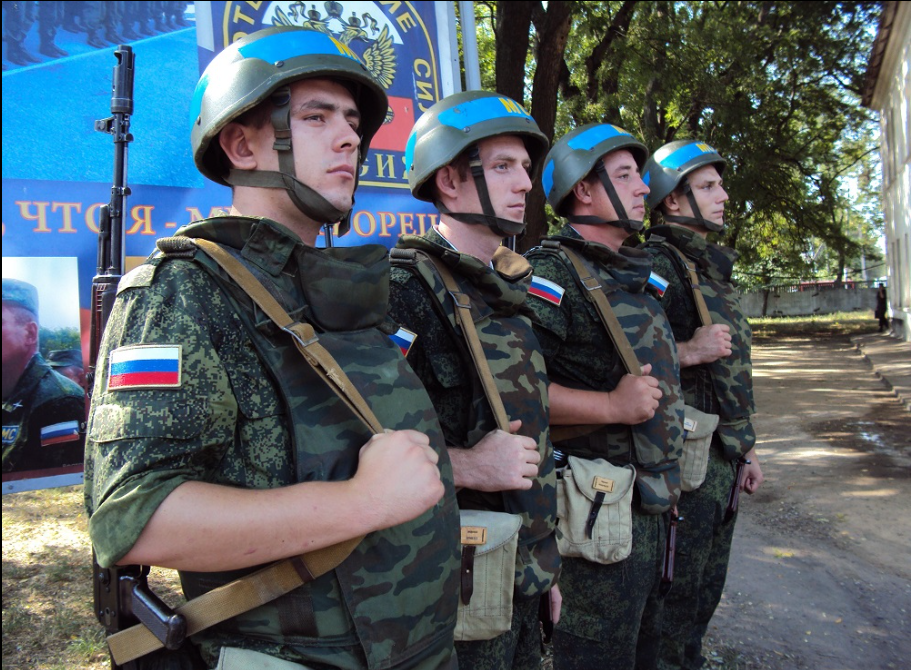
The Russian “peacekeeping” contingent there is just two motorized battalions – a very small force. Still, Moldova cannot confront them militarily, having a weak national army of only around 6,500 troops. President Sandu has acknowledged the lack of combat readiness that must be addressed.
A recent incident involving a Russian Shahed drone that crossed into Moldova and crashed near the Ukrainian border shows little has likely changed. Moldova’s military radars and early warning systems failed to detect the UAV.
"The main reason is the target's low flight altitude, small fragment radar cross section, and long distance to target, including due to terrain curvature," Moldova’s Defense Ministry noted.
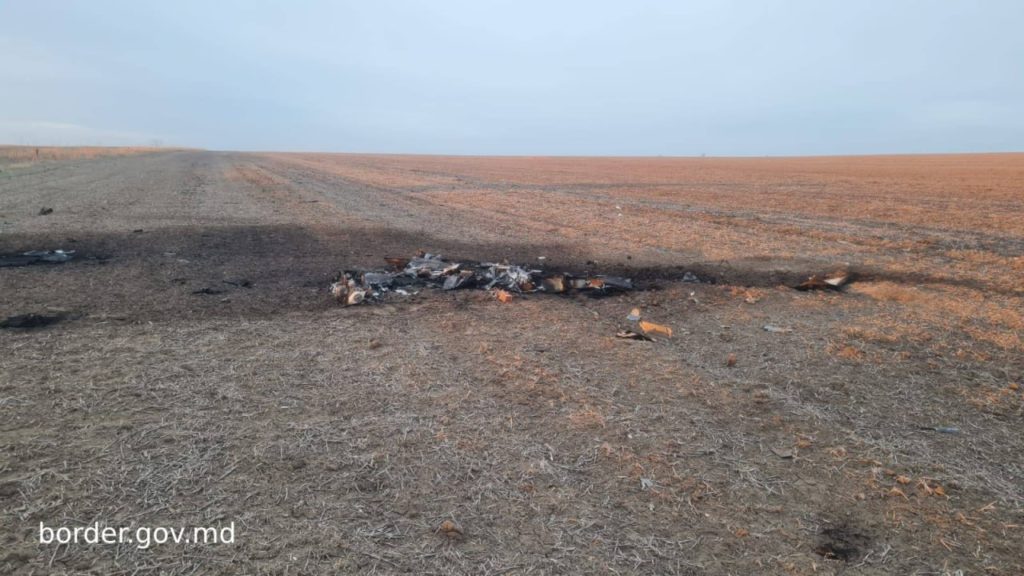
Another possibility is Russia attempting a coup in Moldova resembling what President Sandu outlined. The country remains volatile and vulnerable.
"Moldova is one of the countries most affected by the war in Ukraine, not only because of its physical proximity but also because of its inherent vulnerabilities as a small, landlocked economy with close linkages to both Ukraine and Russia," the World Bank wrote in its country overview.
Russia's hybrid warfare has polarized Moldova's politics, exploiting societal rifts to try sparking anti-Western insurrections. This multi-front coercion targeting Moldovan instability raises concerns of further destabilization given Ukraine war strains. Though military intervention is uncertain, the threats to Moldova's security are still real. We will see if Putin opens a new military front or just tries diverting attention.
Read more:
- Russia planned to take control over Moldova by 2030 - investigation
- Is Moldova the next Ukraine? Nation battles Russian hybrid warfare amid EU bid
- The spectre of the FSB haunts Moldova, next target of Russia's hybrid war
- Moldova spy chief: Russia paid tycoon group $55.5 mn to overthrow government


